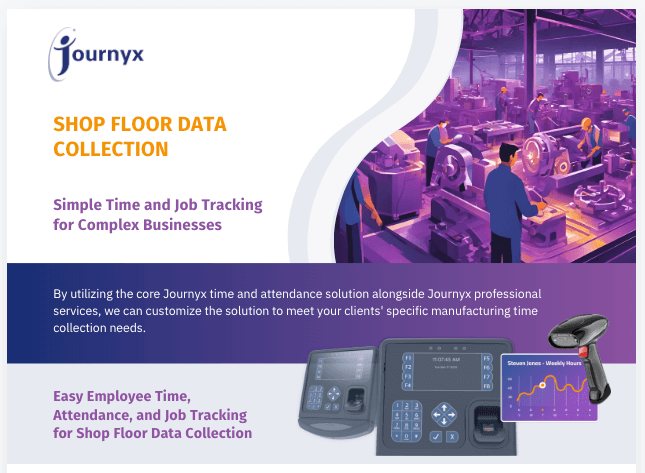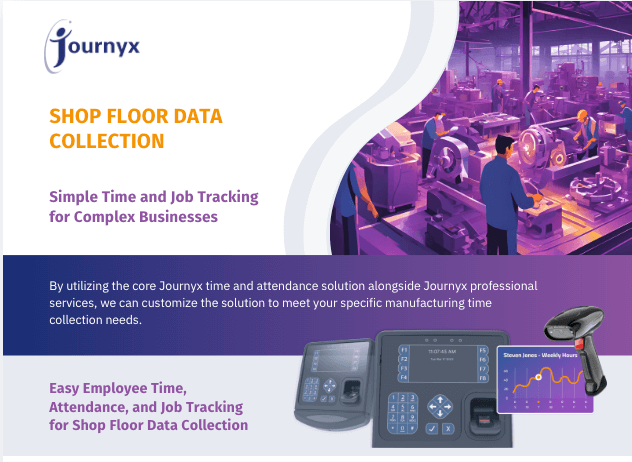Know Your Employee Time and Attendance Recordkeeping Requirements
What Employee Records do you Need to Keep?
Today, with so many disparate regulations governing employee recordkeeping requirements in the United States, it has become exceedingly difficult to keep track of exactly what employee records you need to keep and how long you need to keep them.
Nearly every United States federal employment law sets specific recordkeeping rules for employee data depending on the data in question. In addition, most states and many local municipalities have additional recordkeeping requirements that go beyond the federal mandates.
Here, we will be taking quick look at what your business will need to stay in compliance with common recordkeeping requirements in the United States.
The content in this article is for informational purposes only and does not, and is not intended to, constitute legal advice. Please consult a qualified legal professional for regulatory compliance guidance and legal advice.
The Short Answer for Time and Attendance Record Retention
If you are looking for the most straightforward solution for record retention many experts will recommend keeping all employment data for the entire amount of time a person remains an active employee, plus 5 years.
There are notable exceptions, however. The only general federal provisions that extend beyond the 5-year retention requirements are:
- Records for pension and welfare benefit plans, which require 6 years retention following employment.
- Records for safety and toxic chemical exposure, which require 30 years of retention following employment.
Careful organization, accurate workforce data collection, and proper data security and storage are the keys to a successful record retention program. While keeping enormous amounts of employee data is not going to be every company’s strong suit, staying in compliance is well worth the effort.
The Long Answer for Time and Attendance Record Retention
The best record retention policies are the most inclusive policies. Keeping as much information for as long as possible, as securely as possible, is advisable for protection against labor-related litigation as this minimizes the risk of your business lacking any relevant records.
When creating your record retention policy, it is useful to categorize documentation and data retention requirements by employee status:
- Pre-employment: Retain records for non-hires for a minimum of 2 years.
- During Employment: Retain all current employee records.
- Post-employment: Retain previous employee records for a minimum of 6 years.
Employee Benefit Record Retention
For many businesses (excluding those with unlimited PTO policies) employee time off such as vacation time and sick time should be carefully tracked. Ideally, these records should be tracked with an automated time and attendance system to protect against claims of discrimination. Since some states and company policies require unused accrued vacation time to be paid out upon termination, accurate and complete documentation helps dispel any compensation claims from former employees.
Additionally, pension and retirement-related records must be retained for 6 years following employee separation according to the Employee Retirement Income Security Act (ERISA).
It is often strongly recommended to keep all records for family leave, medical leave, and worker’s compensation indefinitely. This ensures compliance with the Family and Medical Leave Act and protects your business from future litigation.
The Most Common Recordkeeping Requirements
There are several common employee recordkeeping requirements that all businesses in the United States must comply with. These common requirements, along with often specific and intricate state and local mandates, can create a complicated network of employee recordkeeping that must be meticulously tracked and maintained.
Here are some of the most widely applicable record retention requirements:
Fair Labor Standard Act (FLSA)
- Application
- All employees
- Retention Requirements
- Retain for 3 Years:
- Employee information (name, address, occupation, birth date if under 19, and gender)
- Complete payroll records (hours worked, overtime, and wage deductions)
- Certificates
- Union agreements
- Written training agreements
- Sales and purchase records
- Certificates of age for employees under 18
- Retain for 3 Years:
- Additional Retention Requirements
- Retain for 2 Years:
- Basic employment and earnings records
- Wage rate tables
- Job descriptions
- Actual work completed
- Wage additions and deductions
- Evaluations
- Merit or seniority systems
- Wage differential payments to employees of the opposite sex and same position.
- Retain for 2 Years:
FLSA Equal Pay Provisions
The equal pay provisions of the FLSA prohibit wage differences between men and women who are employed by the same company performing the same duties in similar working conditions. These provisions are enforced by the Equal Employment Opportunity Commission and require some additional records to be kept.
- Application
- All employees
- Retention Requirements
- Retain for 3 Years:
- Collective bargaining agreements
- Employee information
- Payroll information
- Retain for 3 Years:
- Additional Retention Requirements
- Retain for 2 Years:
- Explanation of merit or seniority systems
- Employee time sheets or cards
- Retain for 2 Years:
FLSA Provisions for Tipped Employees
- Application
- Employees who receive tips as part of required wages
- Retention Requirements
- Retain for 3 Years:
- Time paid for hours worked each day in a tipped position
- Time paid for hours worked each day in a non-tipped position
- Tips received and accounted for or turned over to the employer in a weekly or monthly amount
- Retain for 3 Years:
Family and Medical Leave Act
- Application
- Applies to businesses with 50 or more employees as defined by the FMLA
- Retention Requirements
- Retain for 3 Years:
- Detailed payroll and employee data
- Records of FLMA leave
- Copies of all employee notices and documents describing FMLA policies
- Records of premium payments made by employees on FMLA leave
- Copies of requests for leave and notices to employees responding to requests for leaves and designating leaves as FMLA leaves
- Records of any dispute regarding the designation of a leave as FMLA-related
- Retain for 3 Years:
Additionally, the Family and Medical Leave Act requires that any employee records relating to medical certifications, recertifications, or medical histories must be kept in a separate, secure location and maintained as confidential records in separate files apart from typical personnel files. This is not only a requirement of the Family and Medical Leave Act but also an important security and privacy measure that is considered an industry standard when handling confidential employee records.
Internal Revenue Service (IRS) Regulations
- Application
- All employees
- Retention Requirements
- Retain for 4 years after payment, deduction of taxes, or due dates of returns:
- Basic employee data (including name, address, Social Security number, and birth date)
- Pay records (including daily and weekly hours, overtime, tips, deductions from pay, taxes withheld, fringe benefit payments, and the amounts and dates of wage payments)
- Copies of employee withholding forms (W-4 or W4-E)
- Annual records of total wages and taxable pay
- Documentation describing why any taxable pay did not equal the total pay for an employee.
- The amount paid into the state unemployment fund (including employee pay deductions)
- Employee experience rating data
- Retain for 4 years after payment, deduction of taxes, or due dates of returns:
In addition, retention requirements can be extended by the IRS for as long as records are pertinent to a tax filing in question. For this reason, many experts recommend keeping IRS-related records indefinitely.
Keep your Workforce Records Accurate with Journyx
When it comes to compliance with recordkeeping requirements, it is better to be safe than sorry. Keeping well-maintained records can sometimes be a challenging task, especially for companies with hundreds or thousands of employees. But overall, ensuring thorough compliance with these labor and recordkeeping standards can protect your organization from unnecessary risk and costly litigation.
Journyx, proven experts in workforce time and attendance, can help your business stay in compliance.
Journyx aids your business by keeping accurate track of employee hours and payroll information, an essential aspect in each of the recordkeeping regulations discussed in this article.
Contact us today to determine if a flexible time and attendance system is right for your business.
Let’s Get Started. Book a Demo Today.
Journyx helps you track time for projects, payroll, and more. Learn how Journyx can help you use time to your advantage in your business.



